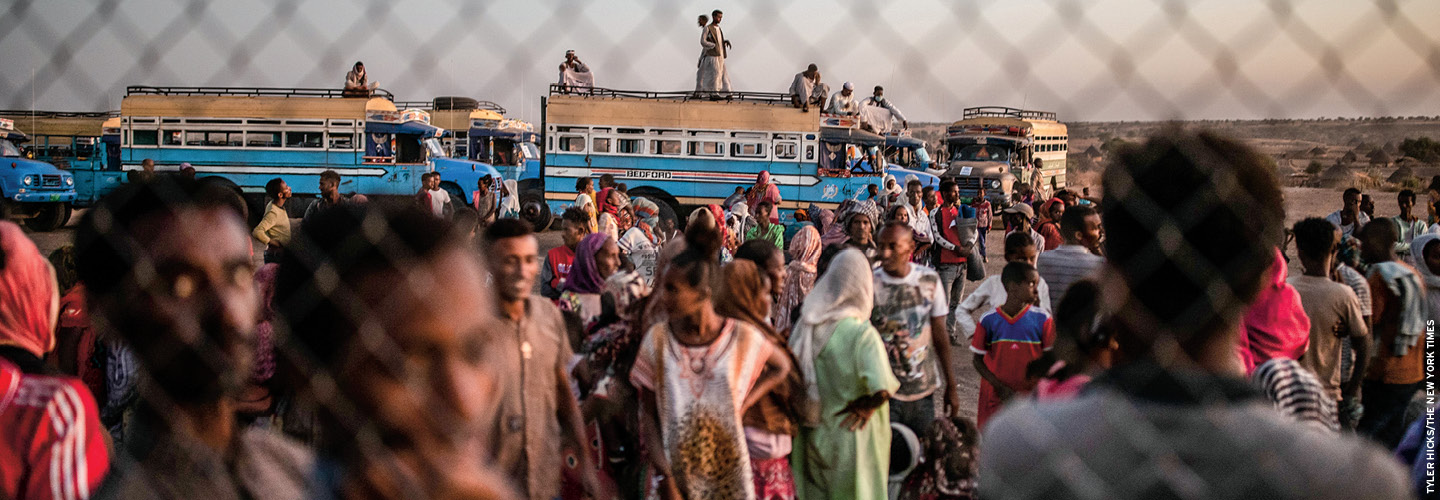There are children everywhere at the Um Rakuba refugee camp in eastern Sudan. Daniel Yemane, 12, is one of them. He fled the Tigray region of Ethiopia after getting separated from his family in the violence that recently erupted there. He crossed the border into Sudan alone.
On his way to the border, Daniel saw the bodies of dead people.
“With my own eyes,” he says, pointing to his eyes. “If things go the way they are, I will never go back.”
Daniel says he longs to see his two younger sisters, play and watch soccer with his friends, and return to school.
“I miss home,” he says.
Daniel is part of a wave of Ethiopians who have fled the northern region of Tigray since fighting broke out there in November. More than 61,000 Ethiopians have fled their country, and more than 20,000 of those refugees are at the Um Rakuba camp. Almost a third of the Ethiopian refugees are children, including hundreds who, like Daniel, are unaccompanied, according to the United Nations refugee agency.
They’re fleeing a conflict that began when Ethiopian Prime Minister Abiy Ahmed launched a military offensive in the Tigray region. Abiy accused Tigray’s regional leaders of attacking a government defense post and trying to steal military equipment. But even before that, a long-simmering feud between the federal government and the leaders of the Tigray region had been barreling toward conflict for months.
There are children everywhere at the Um Rakuba refugee camp in eastern Sudan. Daniel Yemane, 12, is one of them. His family had lived in the Tigray region of Ethiopia. After violence recently erupted there, he got separated from them. He fled the region, crossing the border into Sudan alone.
On his way to the border, Daniel saw the bodies of dead people.
“With my own eyes,” he says, pointing to his eyes. “If things go the way they are, I will never go back.”
Daniel says he longs to see his two younger sisters, play and watch soccer with his friends, and return to school.
“I miss home,” he says.
Daniel is part of a wave of Ethiopians who have fled the northern region of Tigray since fighting broke out there in November. More than 61,000 Ethiopians have fled their country, and more than 20,000 of those refugees are at the Um Rakuba camp. Almost a third of the Ethiopian refugees are children. Like Daniel, hundreds of them are unaccompanied, according to the United Nations refugee agency.
They’re fleeing a bloody conflict. It began when Ethiopian Prime Minister Abiy Ahmed launched a military attack in the Tigray region. Abiy accused Tigray’s regional leaders of attacking a government defense post and trying to steal military equipment. But the feud between the federal government and the leaders of the Tigray region had existed long before that. Things between the two forces had been heading toward conflict for months.

